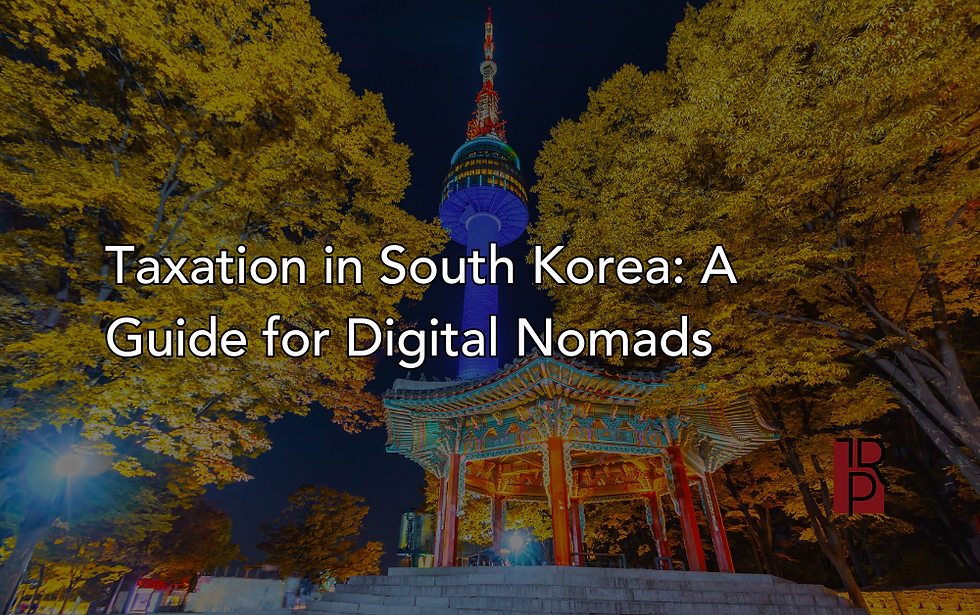
Taxation in South Korea: what are taxes like in South Korea for digital nomads?
South Korea, with its advanced technology and vibrant cultural scene, has attracted a growing number of digital nomads. For these professionals, understanding the nuances of South Korean taxation is essential to ensure tax compliance and efficiency. This article will address the main aspects of taxation for digital nomads in South Korea, based on relevant legal provisions, and will subtly consider the motivations and lifestyle choices of these individuals.
1. Tax residency in South Korea
In South Korea, determining tax residency is key to understanding tax obligations. According to the South Korean Income Tax Act, an individual is considered a tax resident if they stay in the country for more than 183 days in a tax year. Tax residents are subject to tax on their global income, while non-residents are only taxed on South Korean source income.
Legal provision: The Income Tax Act, Article 2, defines the conditions of tax residency and the related tax obligations.
2. Personal Income Tax
For tax residents, personal income tax is progressive, ranging from 6% to 45% depending on the annual income bracket. For non-residents, the rate applied to South Korean source income is generally 20 per cent, and may vary according to double taxation treaties.
Legal provision: The Income Tax Act, Article 55, describes the rates applicable to different income brackets.
3. Taxation of Digital Nomads' Income
For digital nomads, income from activities such as freelancing or remote services carried out in South Korea is considered South Korean source income and therefore subject to taxation. The application of double taxation treaties can reduce or eliminate the incidence of tax in certain cases, depending on the digital nomad's country of origin.
Legal provision: The Income Tax Act and applicable international double taxation treaties, which can be consulted to avoid double taxation and ensure tax compliance.
4. Capital Gains Tax
Capital gains, especially those resulting from the sale of property or assets in South Korea, are taxable for tax residents. Non-residents may also be subject to capital gains tax, depending on the nature of the gain and the existence of tax treaties.
Legal provision: The Capital Gains Tax Act, which specifies the conditions and rates applicable.
5. Lifestyle Choices of Digital Nomads
The choice to live and work in South Korea often reflects the desire of digital nomads to explore new cultures and professional opportunities. Adapting to the country's tax rules is an essential part of this journey, allowing these professionals to enjoy a more integrated and relaxed living and working experience.
6. Conclusion
For digital nomads considering South Korea as a destination, it's crucial to understand the tax implications and seek specialised guidance to ensure compliance and take advantage of the benefits on offer. With careful preparation and an informed approach, it is possible to make a smooth transition to living and working in South Korea, maximising the opportunities the country offers.
That's why it's important to seek out a qualified tax lawyer to analyse your case and make a plan to avoid tax problems.
If you are interested in hiring professional legal services related to Tax Planning, we are a law firm specialising in the subject. To do so, please contact us by e-mail: contato@trpuppioadvocacia.com.br
תגובות